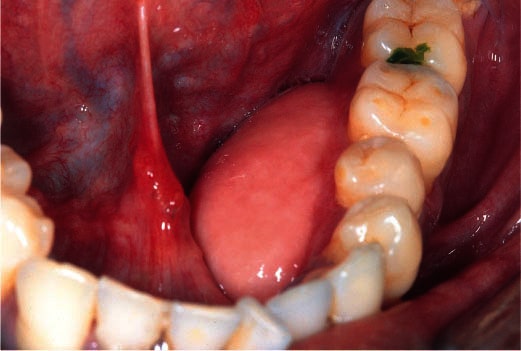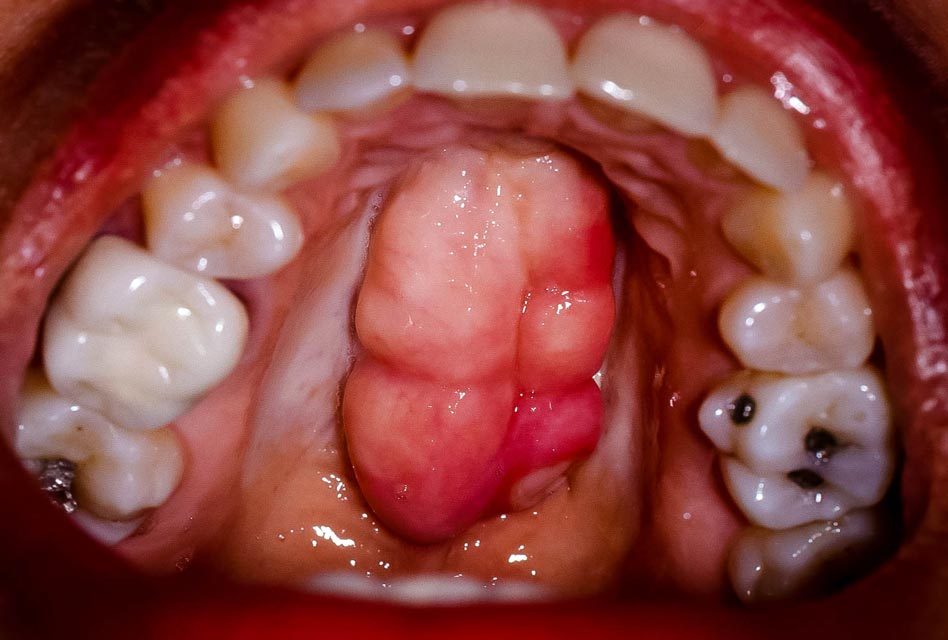Resection of Mandibular and Maxillary Tumors in Iran
you noticed any changes in your mouth and sinus area? If so, waste no time and get these signs checked up, as these may be signs of a benign or malignant mandibular or a maxillary tumor. Resection of mandibular and maxillary tumors is a delicate surgical procedure, in which the surgeon removes the cancerous tissue in your mouth, along with a tiny amount of the normal tissue around it. This procedure differs according to the condition of the patient and the location of the tumor.
Numerous patients seek having this surgery abroad either because of its expensive cost in their countries or due to the lack of proficiency where they live. If this is your case, we recommend you to consider having the resection of mandibular and maxillary tumors in Iran with Dr. Saeedi, the renowned ENT surgeon and otolaryngologist in Tehran to have your surgery done by a proficient subspecialized surgeon at an affordable cost. Please continue reading to have a thorough understanding about this surgery and the benefits of undergoing the resection of mandibular and maxillary tumors in Iran with Dr. Saeedi.
What are mandible and maxilla tumors?
Oral squamous cell carcinoma (SCC) or (oral tumors) represent the majority of all cancerous tumors of the oral cavity. This type of cancer is regarded as an adult disease since it is mostly related to high alcohol and tobacco consumption. However, what is medically known as mandibular cancer is the cancerous tumor located in the lower portion of the jaw. Maxillary tumors are the tumors located in the upper portion.

Who is at risk of oral cancer?
The major cause of this type of cancer may not be completely known. However, risk factors might increase the potential of having cancer. Some risk factors may not be controlled. The majority of the risk factors are changeable.

One of the unchangeable factors is your gender and your skin tone, as oral cancer is more common in men than in women. Furthermore, people with fair skin are more likely to have oral cancer. However, there are other risk factors that increase the risk, such as:
- Heavy alcohol consumption
- Severe sun exposure
- Using tobacco
- Lack of vegetables and fruit in the diet
- Chronic mouth irritation due to poorly fitted dentures
- Weak immune system
- Human papillomavirus (HPV) infection
Can oral cancer be prevented?
Despite the fact that there is no definite way to prevent oral cancers, it is quite simple to reduce the risk factors by following these tips:
- Refrain from using all types of tobacco
- Avoid sitting with smokers (secondhand smoking)
- Limit your alcohol consumption
- Protect yourself from sun exposure
- Eat lots of fruits and vegetables
- Prevent HPV infection
- Maintain a healthy diet
- Take care of your mouth and teeth by having your dentures fitted correctly
What are the symptoms of oral cancer?
Most cancer patients start to notice changes in their mouth, such as:
- A persistent oral sore or lump
- A white or red patch on the gums or tongue
- Numbness, bleeding, or pain in the mouth
- Trouble and pain while chewing or swallowing
- Pain in the ear or jaw
- sudden voice change
- Jaw swelling
- Pain in the teeth
- Unexplained weight loss
Many of these symptoms may be developed because of other health problems. However, the doctor is the one to decide whether these are symptoms of oral cancer or not.
How is oral cancer diagnosed?
Most cases of oral cancer were discovered during routine dental exams. However, your dentist may ask for additional tests if you inform him/her about any other symptoms or changes you have noticed.
In addition to that, your dentist might request additional tests related to your symptoms, risk factors, your health history, and family history of disease. Depending on the results of the initial thorough tests, your doctor may require a biopsy to check for cancer, as it is the surest way to confirm cancer.
How can oral and sinus cancer be treated?
Every case of cancer requires different treatment, as it all depends on the type of oral cancer and its stage. In addition to that, the treatment differs according to the goal of it, as doctors may try control the cancer, ease its symptoms or cure it.
For instance, oral cancer may be treated using different procedures, such as radiation therapy, surgery, targeted therapy, chemotherapy, and Immunotherapy. However, the standard treatment in the early stage of maxillary sinus cancer is surgical excision followed by postoperative radiation therapy.
When it comes to the surgical procedure, the surgeon may remove a portion of the affected area in the oral cavity or all of it, as there are more than surgical option and deciding on the best treatment choice depends on your condition. Your surgery options include:
- Primary tumor resection: In this surgery, the cancerous tissue in the mouth, in addition to a little portion of the normal tissue around the tumor, are removed. Furthermore, in some cases where large amounts of tissue are removed, surgeons had to use reconstruction for rebuilding the surgical area using normal tissue from another part of the body.
- Partial tumor resection: if the patient is suffering from a tumor in their jawbone (mandible), the surgeon may remove part of the bone. However, another part of the body, a bone from a donor, or a metal plate, could be used to rebuild the jawbone.
- Maxillectomy: in this surgical procedure, the surgeon may remove a part of the upper jawbone if the cancer is located in the bone that holds the upper teeth.
- Mohs surgery: This method is used to remove the tumor if it is located in your lip. The purpose of this procedure is to help maintain the lip’s function and appearance.
- Glossectomy: this method is used when the tumor is located in the tongue. During this procedure, a full or partial removal of the tongue may be needed.
- Neck dissection: This method is used if the cancerous tumors have spread to the lymph nodes in the neck. In neck dissection surgical procedure, the effected lymph nodes in addition to some of the nearby tissues are removed.
Why to undergo the resection of mandibular and maxillary tumors in Iran?
Iran offers a wide variety of treatments for all types of cancer, such as surgery, immunotherapy, radiotherapy, hormone therapy, targeted therapy, and stem cell therapy. These treatments are offered to the patients by the most qualified medical teams, using state-of-the-art medical equipment.
Iran boasts to be one of the leading countries in the Middle-East region and even in the world in the early diagnosis and treatment of tumors and cancers. Add to this the affordable costs of these efficient treatments, which is due to economic factors such that the decline in the value of the national currency in relation to foreign currencies.
Why to undergo the resection of mandibular and maxillary tumors in Iran with Dr. Saeedi?
Dr. Masoumeh Saeedi is one of the most famous Iranian surgeons worldwide for her reputation for performing more than 7,000 successful surgeries during the last 12 years. Dr. Saeedi’s successful procedures were in the field of skull base tumors surgeries, ear surgeries, cochlear implants, acoustic microsurgical surgeries, hearing restoration surgeries, tympanoplasty, stapedectomy, parotidectomy, mandibular gland tumors, laryngeal surgeries such as laryngectomy, thyroidectomy, sinus endoscopy and many more.
By having the resection of mandibular and maxillary tumors in Iran with Dr. Saeedi, you can rest assured that you will be in safe hands and that you will get exactly the treatment you need to get rid of this disease. Do not hesitate to contact us now to have a free online consultation on the resection of mandibular and maxillary tumors in Iran with Dr. Saeedi.
Are there any side effects for the resection of mandibular and maxillary tumors?
One of the most common side effects is hair loss. This is due to the damage that has done to normal tissues because of treatments such as chemotherapy and radiation. Sore mouth and vomiting is to be expected, too.
Moreover, major changes to your behavior, such as eating, drinking, speaking, and breathing are going to occur after the surgery. However, the changes differ according to the surgery that was undergone.
How can I speed up the healing process after the resection of mandibular and maxillary tumors?
You can speed up the recovery process by following these tips:
- Follow a healthy diet that contains as many protein foods as possible.
- Rest as much as needed.
- Stay hydrated.
- Keep your level of physical activity high.
- Take your medicines as prescribed.
How much is the cost of the resection of mandibular and maxillary tumors in Iran with Dr. Saeedi?
Oral Tumors treatment cost changes depending on the condition and the country. For example, the procedure costs between $3,200 and $6,400 in India and about $8,200 in Turkey. However, the cost increases according to the severity of the condition. Taking this in consideration, you can undergo the resection of mandibular and maxillary tumors in Iran with Dr. Saeedi for a less much cost, so you can undergo it for about one quarter the cost in the western countries. Please contact us now through this site or via WhatsApp to have a free consultation and price quote on the resection of mandibular and maxillary tumors in Iran with Dr. Saeedi.
Frequently Asked Questions about the Resection of Maxillary and Mandibular Tumors
Are there different types of oral tumors?
Salivary gland tumors, carcinoma of the maxillary antrum, maxillary antral tumors, as well as alveolus tumors, are all rare types of oral tumors that begin as a growth of abnormal cells before turning into benign or malignant tumors.
What are submandibular gland tumors?
This type of salivary gland tumors is quite rare. This type of tumors begins as growths of abnormal cells (tumors) in the salivary glands that resides under and behind your jaw, in your lips, inside your cheeks, and throughout your mouth and throat.
What are the symptoms of mandibular gland tumors?
Mandibular gland tumors have common symptoms, such as:
- Salivary gland infection
- Painful swallowing
- Feeling numbness or weakness in part of your face
How can salivary gland tumors be treated?
Salivary gland tumors are usually treated with surgery. However, different methods of treatment can be used according to the condition.
What are the best treatments for oral tumors?
Local treatments (surgery and radiation), and systemic treatment (pill, injection, chemotherapy, immunotherapy).
What is the difference between benign and malignant jaw cancer?
Benign (noncancerous) tumors do not spread, as they tend to grow slowly, while malignant (cancerous) tumors grow rapidly, invade and destroy nearby normal tissues in addition to spreading throughout the body.
Online Consultation, Directly with Dr. Saeedi
Ask your question via WhatsApp, and if you wish, Send your photo for a more accurate assessment.
Free Consultation on WhatsApp
